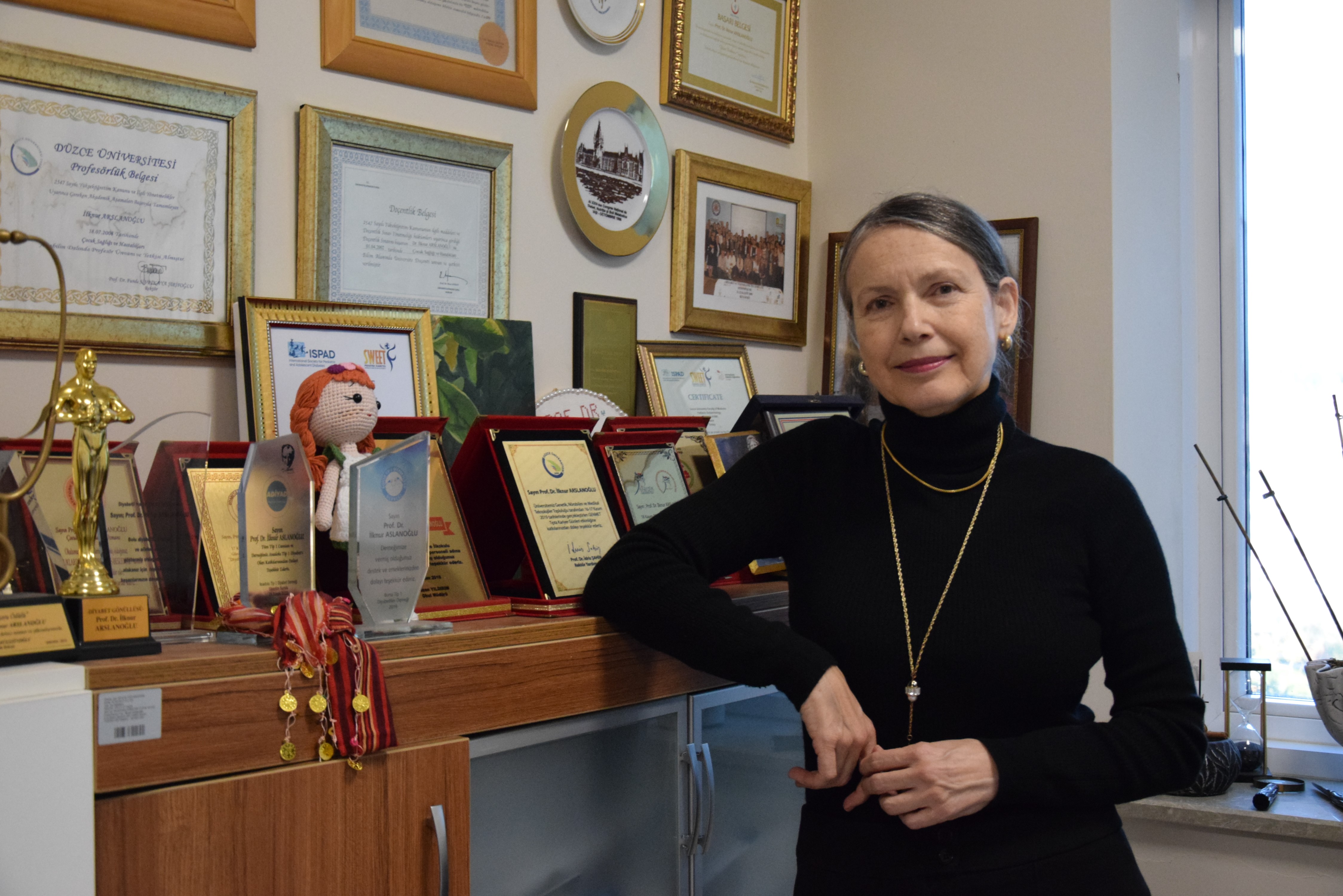
Prof. Dr. İlknur Arslanoğlu, Head of the Department of Pediatric Endocrinology at Düzce University Faculty of Medicine, stated that the most common type of diabetes in childhood is Type 1 diabetes, which requires lifelong insulin use, and that Type 2 diabetes is less common in children, but is gradually increasing in adolescents.
Prof. Dr. İlknur Arslanoğlu, Head of the Department of Pediatric Endocrinology at Düzce University Faculty of Medicine, made statements on the occasion of “November 14 World Diabetes Day”. Stating that the most common type of diabetes in childhood is type 1 diabetes, which requires lifelong insulin use, Prof. Dr. Arslanoğlu stated that the most important reasons for this are congenital genetic predisposition, and emphasized that harmful factors related to the environment and lifestyle also facilitate the process.
Emphasizing that genetic predisposition cannot be prevented in the development of diabetes in children, Prof. Dr. Arslanoğlu said, “However, lack of vitamin D, omega 3 and antioxidants, lack of nutrition, sleep and movement patterns, external stress factors or the individual's inability to cope with them, polluted air and unnatural environment, excessive and unconscious hygiene can be counted among the risks that can be reduced.”
“Type 2 diabetes is increasing especially in adolescents”
Pointing out that although Type 2 diabetes is less common in children, it is increasing in adolescents, Prof. Dr. Arslanoğlu said, “This type of diabetes is closely related to obesity, but obesity can also increase the risk of Type 1 diabetes by negatively affecting the immune system. Type 2 diabetes progresses more insidiously, it can reach very advanced stages before symptoms appear, but if it is not too late, it can be treated with lifestyle adjustments and oral medications without being dependent on insulin. Type 1 diabetes, on the other hand, progresses more rapidly and requires insulin even if lifestyle is observed. In cases that have not yet progressed, it may be necessary to decide with a sugar loading test and a hemoglobin A1c test that shows the three-month average sugar level. In addition, the presence of sugar in the urine in classical urinalysis, and if the condition has progressed, the presence of substances called ketones is diagnostic together with blood sugar. However, there are different types of insulin, and appropriate choices should be made for the individual. Insulin pumps, which facilitate both the administration of insulin and its adjustment according to the body's needs, are also important technological products that help in treatment.”
“The support of the general environment is important in diabetes management in children”
Noting that diabetes management in children should be in close cooperation with the family and the diabetes team, Prof. Dr. Arslanoğlu said, “In addition, the support of the general environment, especially school staff, is important. With this cooperation, the three pillars of diabetes management, namely insulin, nutrition and exercise, should be maintained in harmony with each other, and this harmony should be monitored by continuous glucose measurement. All this should be accompanied by an intensive experience and support that will not reduce the child's quality of life and joy of living. They just need to be faster, more skillful and more aware than anyone else in order to catch up with their peers. The best examples are medical professors who have had diabetes since childhood, professional athletes, and successful parents with diabetes who have had more than one child.”
“We receive applications from every corner of the country”
Arslanoğlu also gave information about the facilities and activities of the Pediatric Diabetes Center of Düzce University Faculty of Medicine Hospital. Pointing out that the Pediatric Diabetes Center is one of the two members of the SWEET association in Turkey, where 130 centers in the world are certified, Arslanoğlu said, “The vision of our center is to deliver the most advanced pediatric diabetes care to every child without exception who requests service from us, while trying to develop every method that will make their lives easier with the most sensitive approaches. Since we receive applications from all corners of the country, it is not possible for us to be sufficient with routine service methods and we are constantly developing new methods with intensive team communication. Among these are our 24-hour Whatsapp counseling groups, our mobile activities where we visit homes, schools and regions, our camps, zoom meetings, the ties we have established with schools, kindergartens, family and social services, family physicians and the trainings we provide.”
İHA Haber Kodu: 20241113AW328427